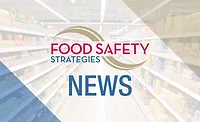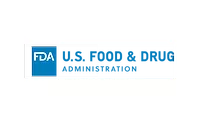FDA Announces FSMA Food Traceability Proposed Rule

Today, the U.S. Food and Drug Administration (FDA) announced a proposed rule to establish additional traceability recordkeeping requirements for certain foods. The FDA also published a draft “Food Traceability List,” (FTL) which describes the foods that would be subject to the proposed requirements. The list includes leafy greens, fresh-cut fruits and vegetables, some types of fish, shell eggs, nut butters, and more.
The proposed rule, “Requirements for Additional Traceability Records for Certain Foods” (Food Traceability Proposed Rule) is a key component of the FDA’s New Era of Smarter Food Safety Blueprint and would implement Section 204(d) of the FDA Food Safety Modernization Act (FSMA). If finalized, the proposal would standardize the data elements and information firms must establish and maintain, and the information they would need to send to the next entity in the supply chain to facilitate rapid and accurate traceability. While limited to only certain foods, this proposal lays the foundation for a standardized approach to traceability recordkeeping, paving the way for industry to adopt, harmonize, and leverage more digital traceability systems in the future. Where possible, FDA has drawn on existing consensus standards that industry members may already be using.
Existing FDA regulations require much of the food industry to establish and maintain records to identify the immediate previous sources and the immediate subsequent recipients of foods (commonly referred to as “one-up, one-back” recordkeeping). These requirements form a baseline for traceability recordkeeping, but they provide limited information to effectively and rapidly link shipments of food through each point in the supply chain. This—and the fact that recordkeeping systems can be largely paper-based and lack a universal lexicon throughout industry—can make it difficult to trace a product to its original source when necessary.
As a result, many foodborne illness outbreak investigations have been slowed, resulting in more illnesses and economic loss. Improved traceability, as envisioned by the proposed rule, would allow the FDA to more quickly identify the source of a contaminated product, reduce the scope of product recalls, and conduct more timely root-cause investigations to learn more about how contamination occurred in order to prevent future outbreaks.
At the heart of the proposal is a requirement for those who manufacture, process, pack, or hold a food on the FTL to establish and maintain records associated with specific Critical Tracking Events (CTEs): growing, receiving, transforming, creating, and shipping. For each CTE, entities would be required to establish and maintain records containing Key Data Elements (KDEs). Examples of KDEs include the traceability lot code, the date the product was received, the date the product was shipped, and a product description. The traceability lot code is an important KDE throughout the supply chain intended to establish critical linkages that will help to facilitate rapid traceback and traceforward investigations during foodborne illness outbreaks and recall events. In addition, those subject to the rule would also be required to create and maintain records related to their internal traceability program, which would help regulators better understand a firm’s recordkeeping practices and traceability operations.
The proposed rule would require records to be maintained as either electronic, original paper records, or true copies. In addition, the proposal states that in the event of a foodborne illness outbreak, a product recall, or other threat to public health, the FDA could require that firms submit, within 24 hours, an electronic sortable spreadsheet containing relevant traceability information for specific foods and date ranges. More generally, the FDA encourages all food businesses to maintain their traceability records electronically whenever possible, to expedite the identification of traceability information when needed to address threats to public health.
The requirements of the proposed rule would only apply to foods that are on the FTL, which includes foods that have listed foods as ingredients. The proposed rule includes several exemptions, including that the additional traceability records would not be required after a kill-step (a process that significantly minimizes pathogens in a food) is applied to a food, but documentation of the kill-step application would have to be established and maintained.
The proposed rule and draft Food Traceability List are available for public comment for 120 days from the date of publication. The FDA will also be holding three public meetings during the public comment period. Information about the public meetings will be provided in a forthcoming announcement.
Looking for quick answers on food safety topics?
Try Ask FSM, our new smart AI search tool.
Ask FSM →







